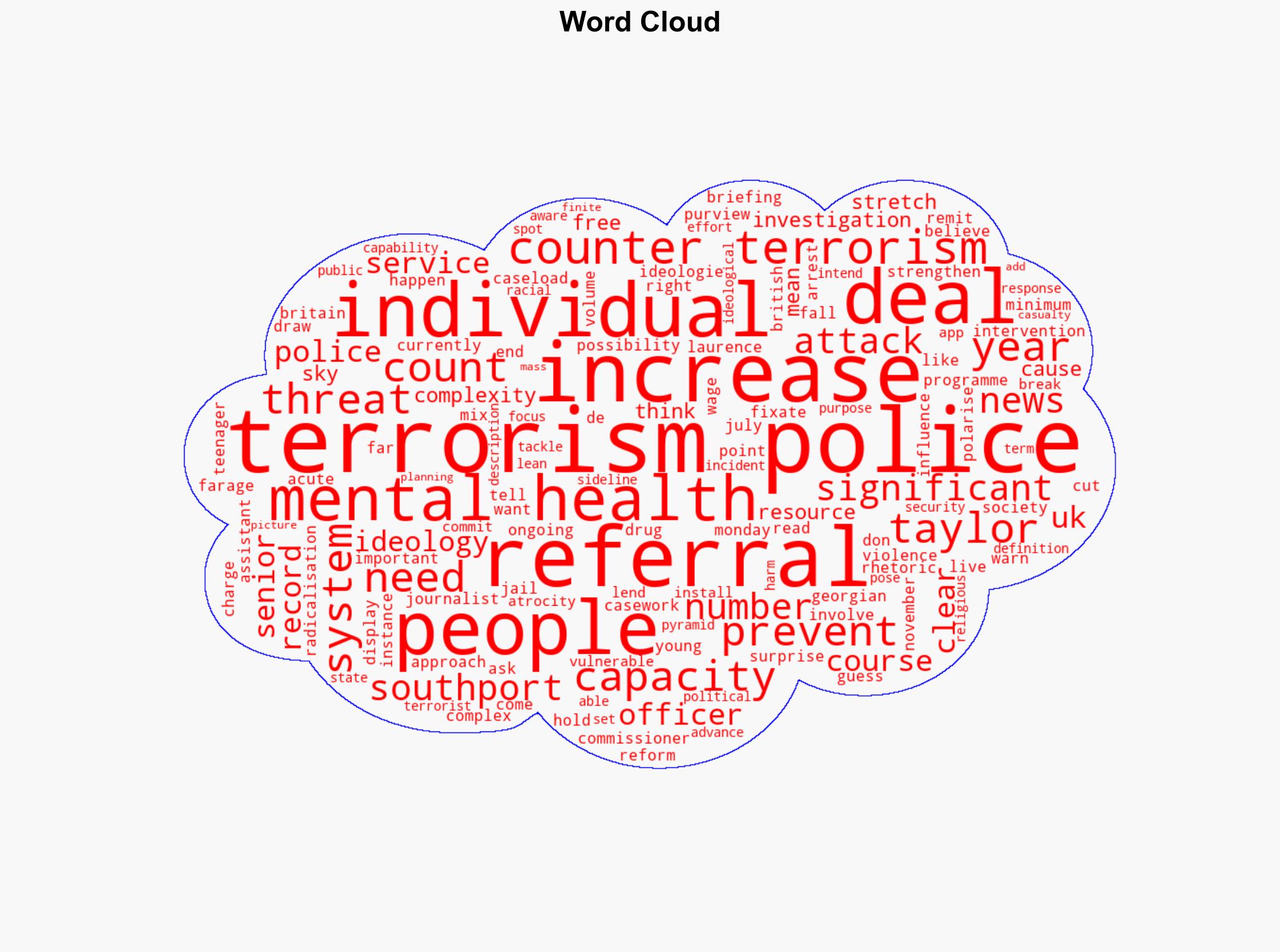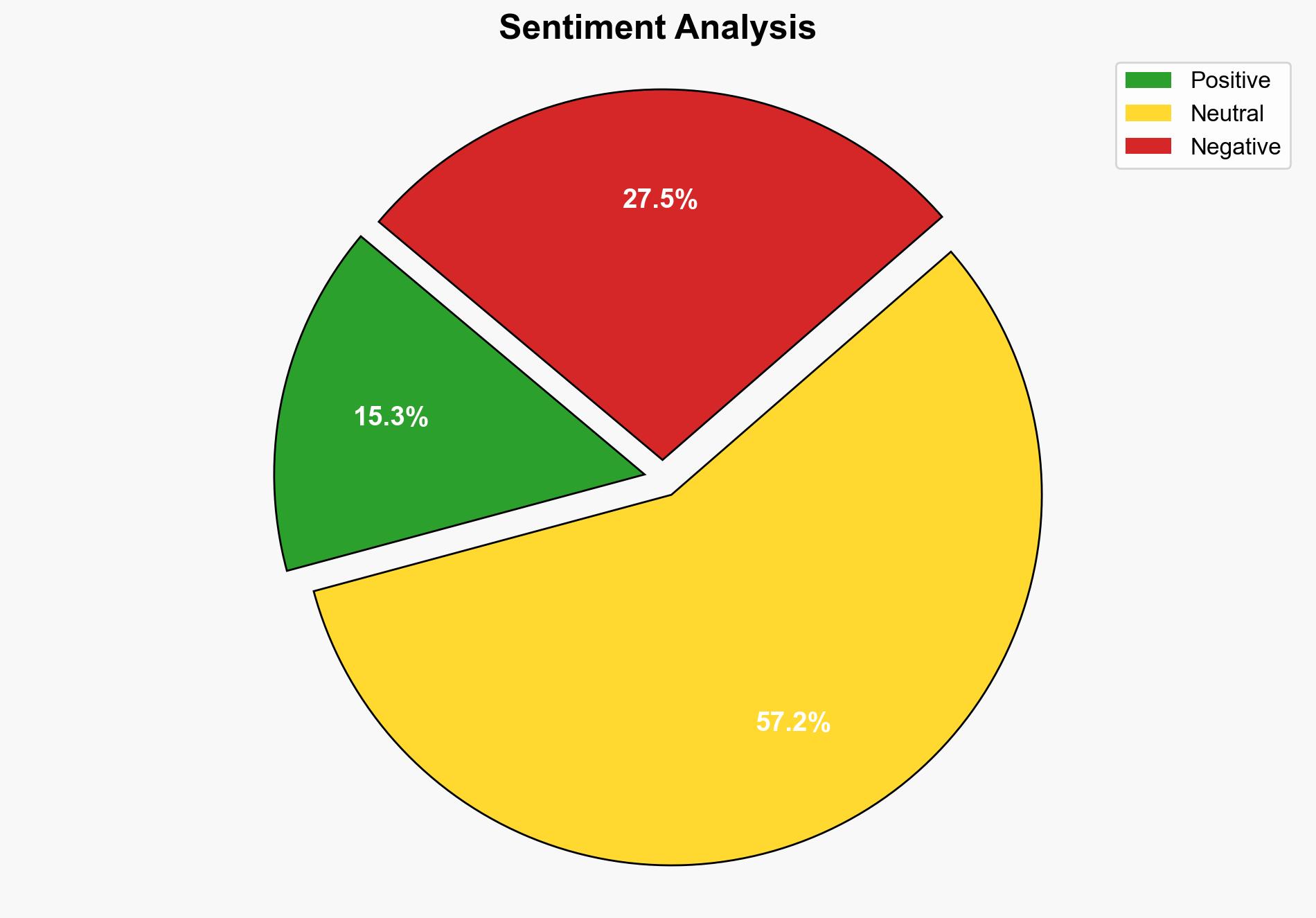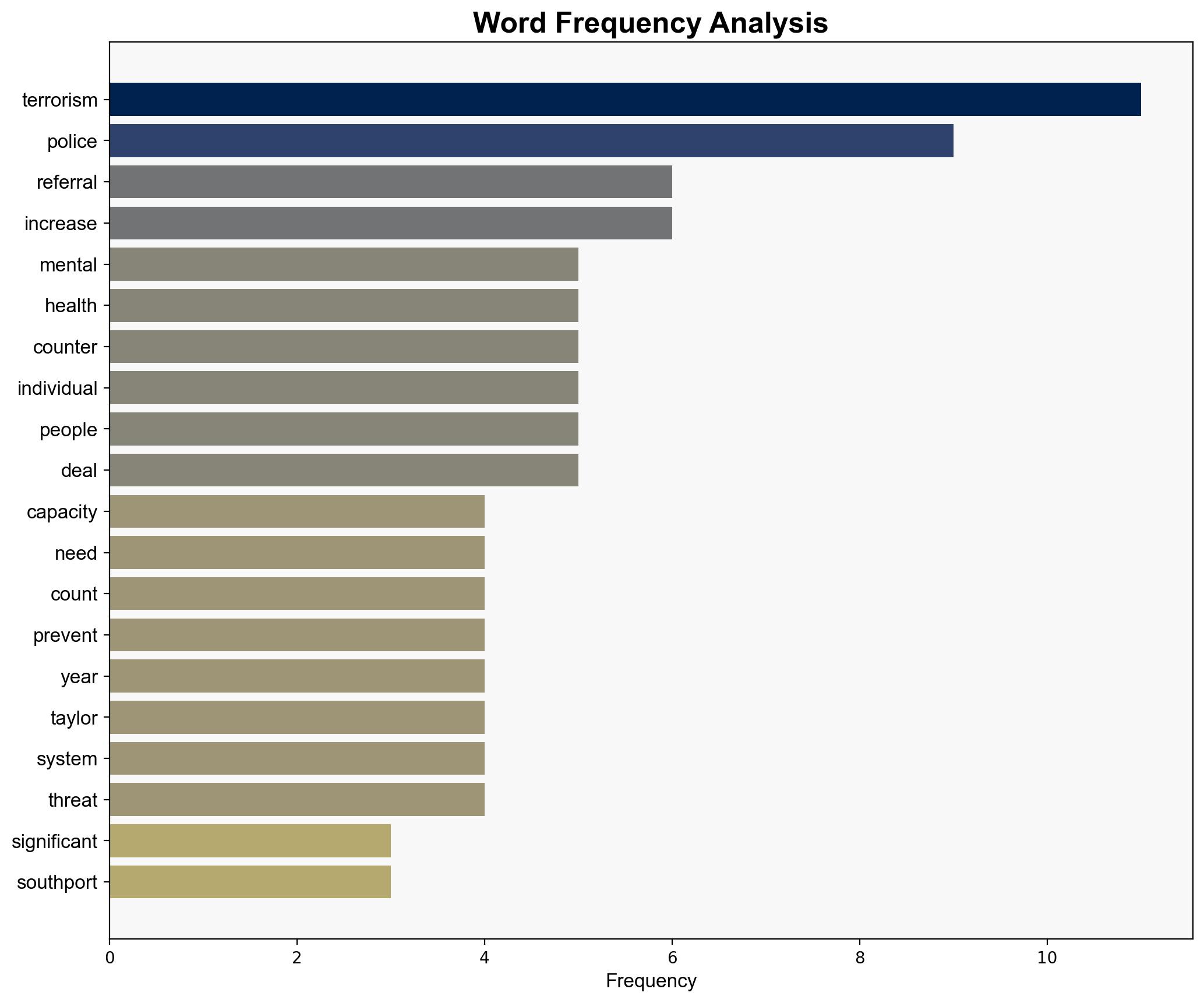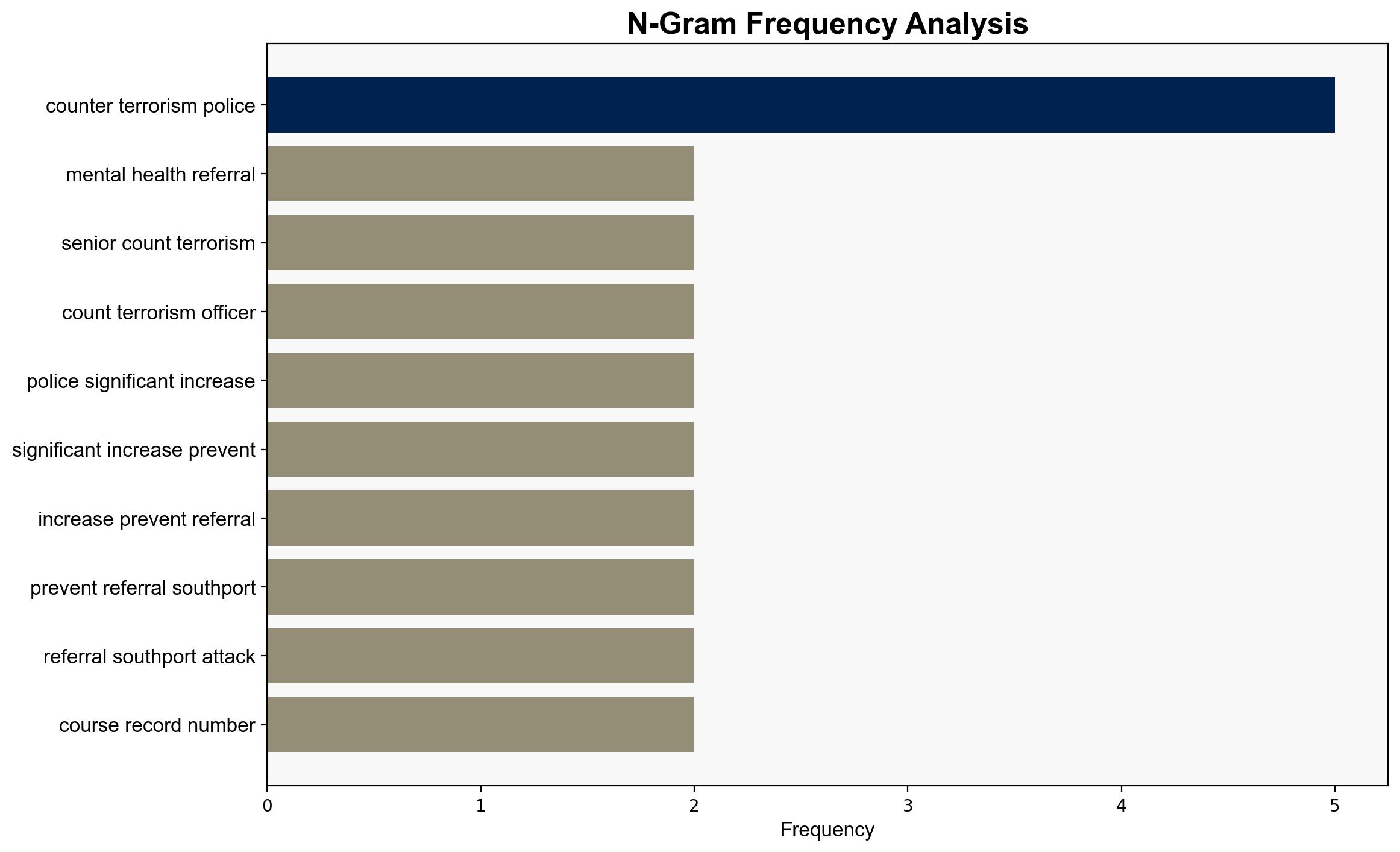More capacity for mental health referrals needed warns senior counter-terrorism officer – Sky.com
Published on: 2025-11-03
Intelligence Report: More capacity for mental health referrals needed warns senior counter-terrorism officer – Sky.com
1. BLUF (Bottom Line Up Front)
The intelligence suggests a critical need to enhance mental health referral capacities to address the increasing complexity of cases involving individuals with mixed or unclear ideologies. The most supported hypothesis is that current counter-terrorism efforts are insufficient without expanded mental health services. Confidence level: Moderate. Recommended action: Increase investment in mental health resources and integrate them into counter-terrorism strategies.
2. Competing Hypotheses
Hypothesis 1: The rise in prevent referrals and complex cases is primarily due to an increase in individuals with mental health issues being drawn to extremist ideologies, necessitating expanded mental health services.
Hypothesis 2: The increase in prevent referrals is largely a result of heightened awareness and reporting mechanisms, rather than a genuine rise in individuals with mental health issues linked to extremism.
Using Analysis of Competing Hypotheses (ACH), Hypothesis 1 is better supported by the data, as the intelligence highlights a significant increase in cases involving mental health elements and the need for enhanced mental health services. Hypothesis 2 lacks direct evidence of increased awareness or reporting mechanisms being the primary drivers.
3. Key Assumptions and Red Flags
Assumptions include the belief that mental health issues are a significant factor in radicalization and that current systems are inadequate. A red flag is the lack of specific data on the effectiveness of current mental health interventions in preventing radicalization. There is also a potential blind spot in assuming all cases with mental health elements are linked to terrorism.
4. Implications and Strategic Risks
Failure to address mental health in counter-terrorism could lead to increased radicalization and potential attacks. Economically, this may strain public health resources. Geopolitically, inadequate responses could damage public trust and international cooperation. Psychologically, it may increase societal polarization and fear.
5. Recommendations and Outlook
- Enhance collaboration between mental health services and counter-terrorism units.
- Conduct a comprehensive review of current mental health referral processes.
- Scenario-based projections:
- Best Case: Improved mental health services lead to a reduction in radicalization cases.
- Worst Case: Continued underinvestment results in increased attacks.
- Most Likely: Gradual improvements in mental health services with moderate impact on radicalization trends.
6. Key Individuals and Entities
Laurence Taylor (Assistant Commissioner)
7. Thematic Tags
national security threats, counter-terrorism, mental health, radicalization, UK security





